15 Coming of Age Movies You Should See
As summer approaches New England, I am reminded of the nights I spent as a teenager driving around aimlessly with my friends. I think of the summertime rituals of my childhood. My mother would kick my brothers and I out of the house and we would not be allowed back inside until dinner time. Who knows how we would pass the time, but this sparked a sense of creativity and imagination within me that I have not lost. I don’t know why, but the arrival of summer always brings with it feelings of nostalgia.
In addition to the memories that play back and forth in my mind, I think of the movies. I remember the feeling of anticipation after a long day running around in the sun. The stars lit up the night sky and the cool summer breeze comforted my skin as I sat on my favorite sofa. This was a reminder that all was well in the world. I can’t remember what movies I watched on which days, but I can’t forget the way the breeze brushed my skin, and the feeling of excitement, security, and bewilderment that can only come from the anticipation of a film in the quiet hours of a summer night.
I am older now, which means that I spend less time playing outside and watching movies. I study cinema now, which means that I have to, at times, sacrifice the fun and anticipation for the high theory and pretentious bores. I am intrigued by Foucault and find the work of Deleuze fascinating, but the most intellectually rigorous post-structuralist cannot compete with the ignorance and innocence of childhood. If all of this sounds personal, perhaps this is because cinema is personal.
A friend of mine once argued that adults who do not grow up watching films never develop an interest in them later in life, whereas adults who grow up watching films maintain their interest in an effort to recapture what it felt like to fall in love with cinema for the first time. In a way, he concluded, adults continue to watch films because they are reminded of their youth–a time in which they not only discovered the wonder of cinema but also the wonder of life.
With that, I devote the following list to fifteen films that attempt to recapture these moments. I call them “coming of age” films. I have limited the list to fifteen and I have tried my hardest to select lesser-known-titles, but in the age of the internet, the concept of “lesser-known” anything has become increasingly arbitrary. I hope that these stir up past memories for you, and create new ones that you can return to later in life.
15. Frances Ha (2012) dir. Noah Baumbach
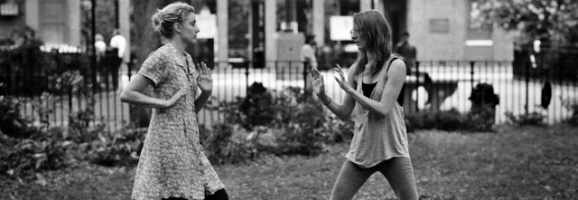
Greta Gerwig is a revelation as Frances, a twenty-something New Yorker who remains hopeful for her future despite lacking any motivation to create one. This is the definitive coming of age film for the internet generation who struggles with student loans, a failing economy, and the general purposelessness of postmodern life. There is one moment in the film when Frances, broke, receives a reimbursement check from the bank. Ordinarily one in her situation would save this money and make it last for as long as possible. Not Frances. She takes her friend Lev (Adam Driver) out to dinner at a fancy restaurant. When it is time to pay, Frances hands the waitress her debit card, but it is rejected from the restaurant because it is not a legitimate credit card. Clearly embarrassed, Frances apologizes to Lev, saying, “I’m sorry. I’m not a real person yet.” What follows is a soon to be classic scene in which Frances furiously runs around New York City trying to find an ATM machine. When she approaches the machine, she is faced with that dreaded decision we’ve all had to make at one point in our lives. To pay the ATM fee, or to return to her friend and accept defeat. Her decisions may not always be wise, but they are always true.
14. Spring, Summer, Fall, Winter…and Spring (2003) dir. Ki-duk Kim

This exquisite South Korean film uses the specific world of Buddhism to tell a universal story of isolation and longing. A young boy comes of age on a secluded lake as his Buddhist master trains him to become a monk. When he thinks of the world he is missing beyond the confines of the island, he is faced with a decision that alters his life forever. The majority of the film is languid in its pacing, and this is a stylistic decision to make us feel as bored within this world as the young boy. But don’t mistake slow pacing for poor storytelling, and don’t dismiss the film because it is void of action scenes. Ki-duk Kim’s film is a gem about themes to which we can all relate. When we are young, we don’t want anything to do with our home and the people closest to us. However, when we become adults and experience all that life has to offer, the harsh realities of responsibilities, deadlines, and commitments ironically bring us back home. Spring, Summer, Winter, Fall…and Spring is a quiet film about the ties that bind us all. It is about what lures us out of our comfort zones and want ultimately forces us back in.
13. Pariah (2011) dir. Dee Rees
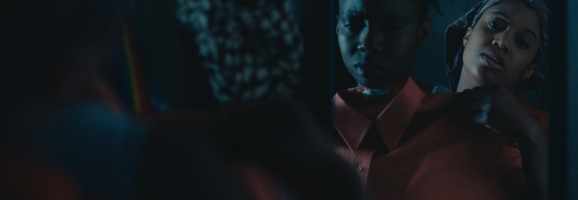
Alike (Adepero Oduye) is a lesbian who must learn how to come into her own as her conservative family fails to accept her sexuality. Oduye is terrific in a role that should have won her an Academy Award. Too often, I think, films about African-Americans are stereotypical and offensive. This is because very few African-American filmmakers are given the chance to tell their own stories. In Pariah, Alike is not your urban youth who must avoid gang life and survive the dangers of the streets. Not to say that these people do not exist, or that these stories are unworthy, but we have seen them before. What makes this film unique, I think, is that Alike is essentially like any other teenager who feels unworthy and unacknowledged. She is a lesbian but the film is not about lesbianism. She is black but the film is not about race. The film is about growing up and finding your own voice, even if that means alienating those around you who do not want to hear it.
12. Los Olvidados (1950) dir. Luis Buñuel
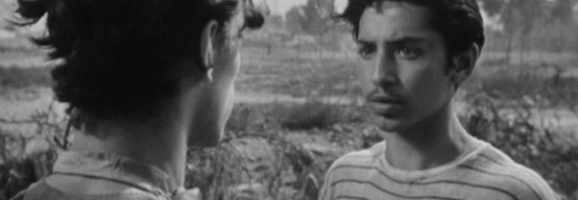
Most of us have seen City of God (2002) or Boyz n the Hood (1991), but few have taken the time to watch Buñuel’s realist masterpiece about gang life in the slums of Mexico city. This is a disturbing film that deliberately shocks the viewer, but it is worth seeing for its audacity to turn the neorealist movement on its head. Unlike most neorealist films which try to capture reality without all of the glossiness that defines Hollywood, Buñuel does not shy away from the hypocrisy of that movement. Italian neorealists, Buñuel suggests, exploit the misfortunes of the poor for art’s sake. Buñuel does not let his audience off that easy. At one point, one of the characters in the film throws an egg at the camera, as if to remind us that we are watching the struggles of poor people from the comforts of a movie theater. These children do not have a chance. They are the poor, the handicapped, and the abandoned. The sad reality is that children grow up in these environments every day. Los Olvidados forces us to wonder what will become of them as adults, without giving us any easy answers.
11. Fanny and Alexander (1982) dir. Ingmar Bergman
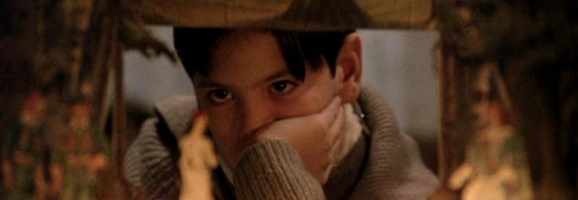
Bergman’s epic masterpiece follows the lives of two children growing up in an eccentric Swedish household in the early 20th century. The film captures the nightmares of the child’s imagination, and since Bergman was often punished by his authoritative father in his youth, we cannot help but view this as Bergman’s most personal work. The film begins with a prologue that is arguably the most beautiful opening in cinema history. Young Alexander is alone in his bedroom and left with nothing but his imagination. To watch what he does in silence is to watch childhood stripped down to its essential core and its most intimate truth. There is also the sense that we are watching Bergman at the moment when he discovered the power of imagination that would make him one of the greatest visual storytellers in art history. His films, like Fanny and Alexander, are terrifying, but then again, so is childhood.
10. Raising Victor Vargas (2002) dir. Peter Sollett
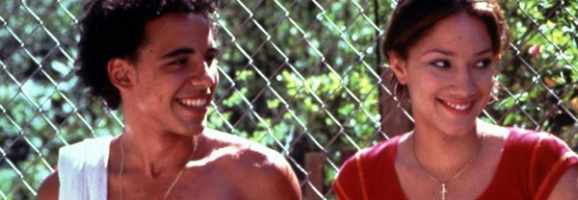
Sollett expanded his excellent short film Five Feet High and Rising (2000) into an excellent feature about a group of teenagers growing up in the Lower East Side of Manhattan. The film is funny, tender, and true, and it captures the realities of awkward adolescence with authenticity. Victor (Victor Rasuk) must learn how to be a man in an environment where sexism is viewed as cool and powerful by other men. In addition, his girlfriend Judy (Judy Marte) struggles to combat that sexism, as well as Victor’s conflicted behavior. On the one hand, Victor wants to be a nice guy for Judy, but on the other hand, he wants to maintain his reputation as a “lady’s man” for all of his male friends. Other characters, such as Victor’s younger sister, younger brother, grandmother, and friends also struggle to come into their own and accept those around them.
9. The Last Picture Show (1971) dir. Peter Bogdanovich
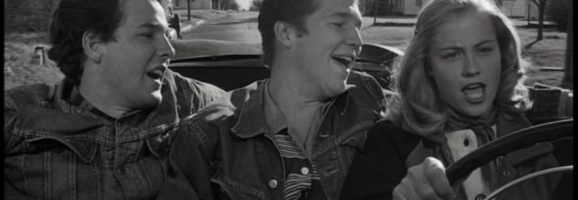
Every now and then a film comes along that just floors you with its brilliance, and Bogdanovich’s masterpiece is one of those films. A portrait of a small Texas town in the 1950s, Bogdanovich revisits the past through the framework of 1970s New Hollywood, offering an honest account of what life was like in a place where teenagers and adults had nothing to do but pass the time. The title of the film refers to the town theater that is closing, but it also symbolizes the loss of innocence the characters endure and the end of one chapter (childhood) and the beginning of another (adulthood). The picture show is synonymous with youth because it is synonymous with adventure, entertainment, and in the case of this town, an escape from boredom. What will they do with their lives now that they cannot go to the picture show? How will they pass the time? Bogdanovich explores this question in a sequel, Texasville (1990), but most agree that he should have left it open-ended, as the sequel fails to live up to the original film’s quality.
8. Amarcord (1973) dir. Federico Fellini
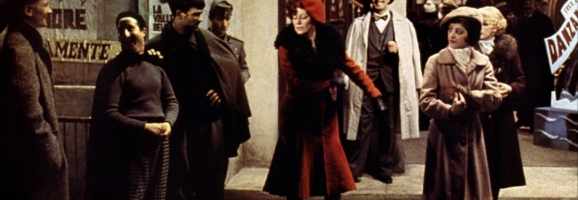
Fellini’s personal nostalgia trip is about growing up in 1930s Italy, and the film is littered with memorable moments that are bound to put a smile on your face and bring a tear to your eye. The fact that this is also one of the best art films of the 1970s shows that cinema can be artistically daring, moving, and entertaining at the same time. One particular scene that stands out involves the snow and the presence of a peacock. Only a filmmaker with a majestic eye like Fellini could pull it off. The scene evokes the wonderment of childhood and the surreal feeling that accompanies the presence and feeling of something new. The peacock represents everything that makes childhood unique, and the snow represents how fleeting it all is. One day it will melt, but if we are lucky enough, we will remember how it felt to see it fall from the sky.
7. The Dreamers (2003) dir. Bernardo Bertolucci

Bertolucci’s sexy film about a young American who forms a close bond with a French brother and sister against the backdrop of the May 1968 riots is a love letter to the French New Wave and the idealism that surrounded it. However, the bittersweet ending suggests that the failure of the riots forced a generation to confront the not so romantic reality of the modern era with disappointment and defeat. The film is racy and not for the conservative–it is NC-17–but it accurately depicts a time in a person’s life when all you are interested in and can think about are pleasures like sex, food, and the movies. With references to Godard, Truffaut, Chaplin, Keaton, and Garbo, the film is a cinephile’s dream come true. Alas, as Bertolucci’s shocking ending implies, we are all dreamers, but as childhood comes to an end, so, too, does the dream.
6. Harold and Maude (1971) dir. Hal Ashby
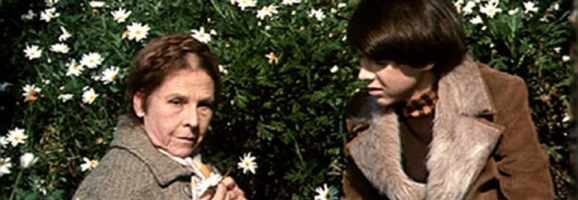
A young, morose teenager’s life is forever changed when he befriends a free-spirited senior citizen who teaches him the meaning of life. The first YOLO film before the term YOLO originated, Harold and Maude makes a strong case against conformity and asks us all to embrace our differences and share them with the world. The most touching scene occurs midway through the film when Maude explains to Harold that each flower in a patch of grass, when you look closely enough, has an observable difference that makes it stand out. Harold and Maude are such flowers, and so is the film. If Maude teaches Harold to embrace life, then Harold teaches Maude to sympathize with others who are not as open to its opportunities. Combined, they both teach us the power of acceptance.
5. Fish Tank (2009) dir. Andrea Arnold
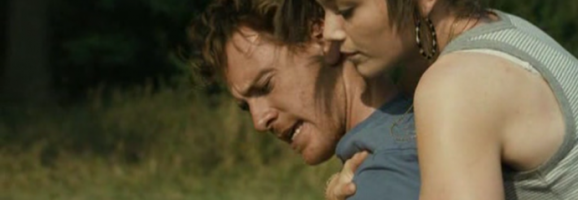
A young teenager, Mia (Katie Jarvis), develops her sexuality in Arnold’s social realist art-film that features one of Michael Fassbender’s most captivating performances. Mia’s mother neglects her for her new boyfriend (Fassbender) and her father has abandoned her long ago. The only peace and freedom she has, it seems, is when she dances alone in her bedroom to hip-hop music. As her mother’s new boyfriend pays more attention to her, however, a relationship forms that sparks a curious desire within Mia. Is she looking for a father figure? A lover? A friend? We may never know, but few films have captured the confusion of teenage sexuality as authentically as this.
4. The Kid With a Bike (2011) dir. Jean-Pierre Dardenne and Luc Dardenne
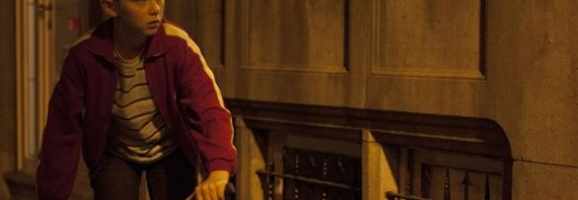
A young boy is abandoned by his father in this poignant drama about life’s vicissitudes. He is taken in by an older woman who offers him the only love he has ever been given. The Dardenne brothers are known for their bleak portraits of modern life, but The Kid with a Bike is refreshingly hopeful. This is not to say that the film is without its hash depictions of reality. It would not be a Dardenne brothers film if the young boy did not experience the brutality of life knocking him down. Eventually he lifts himself up with the help of the older woman, but this does not negate the hardships he faces or the problems he has to solve. The Dardenne brothers believe that the meaning of life is found in struggle, and The Kid with a Bike shows us the beauty in that struggle.
3. La Chinoise (1967) dir. Jean-Luc Godard
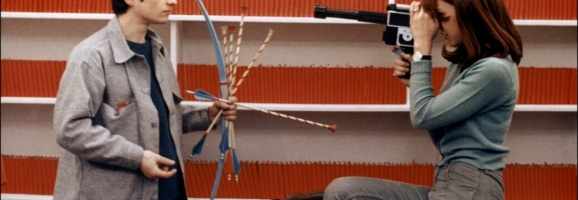
La Chinoise is arguably the most accurate cinematic depiction of political idealism. The film revolves around a group of French students who study Mao and plan a violent revolution. Did the film anticipate the May 1968 riots? Possibly, but only because viewers misinterpreted Godard’s ironic message that ultimately condemns its characters for their lack of political clarity. There is a scene toward the end, however, that clearly demonstrates Godard’s point of view. Veronique (Anne Wiazemsky) discusses politics and revolution with an older Maoist, who is against the violence that Veronique and her student friends promote. Surely Godard is the older Maoist and the students are the naive youths who are unaware of the realities of politics. Surely when the May 1968 riots fail and they see that violence is not a practical solution, they grow up and find less romantic, but more successful ways to be politically active.
2. The Return (2003) dir. Andrey Zvyagintsev

Two Russian brothers must survive the wilderness when their estranged father takes them on a camping trip in this haunting thriller about masculinity. Atmospheric and allegorical, Zvyagintsvev fills the frame with gorgeous images that linger in the mind long after the film has ended. The film is reminiscent of the great work of another Russian director, Andrei Tartovsky, but it is distinctly Zvyagintsvev. Consider the scene in the beginning of the film when the father leaves behind one of the sons because he disobeys orders. This is harshness and totalitarianism that the father equates with manhood. This is the legacy that he wants to leave with his sons. This is why he comes back into their lives after a long absence. But, the film asks, can a boy become a man if it is not yet his time?
1. Y Tu Mamá También (2001) dir. Alfonso Caurón
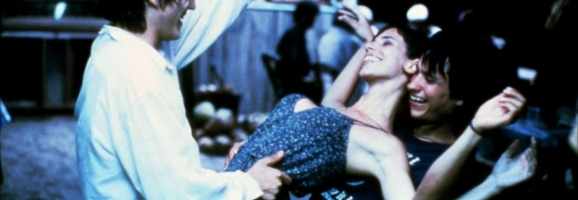
One of the best road movies ever made is also one of the best films about friendship, youth, and sexuality Mexican cinema has given us. Upon first viewing, the film’s humor and sexual honesty take center stage, but repeated viewings reveal its subtle cultural analysis of a nation in change, and its ending sneaks up on you in profound ways. The best scene occurs late in the film as the trip comes to a close. The three characters are drunk and dancing the night away, and Caurón brilliantly captures the bliss of this moment with his gliding camera and rock music score. We’ve all been there at one point. This is a depiction of one of those rare moments where we are entirely absorbed by the people in front of us and the noise surrounding us. We think not of our past nor our future. We think only of the moment at hand, and the sense of possibility that it offers.
Childhood is filled with these moments. They do not last, and they do not come around as often as we would like. But when they do, they remind us why we get up in the morning. They remind us why we once laughed and danced, and why we once made complete idiots of ourselves with utter abandon. They show us how quickly pure moments of bliss slip from our grasp, and how badly we want them to last, if only to savor it all for a bit longer. Films, I think, are like this too.
What do you think? Leave a comment.










Y Tu Mama Tambien is absolute genius. Alfonso Cuaron cemented himself as one of my all time favorites with this film.
Great article, a lot of surprising inclusions that wouldn’t make typical coming-of-age lists.
When Los Olvidados was first released in 1950, Buñuel faced strong opposition by Mexican critics and audiences who claimed it showcased a negative representation of Mexican people. The irony behind this accusation, mostly by the vicious tongues of the upper class, is that it solidifies the validity of the strong social commentary Buñuel attempts to make with this film.
I have not watched any of these. Putting them all on download 😉
I have only seen a few of these, though Yi Mama is outstanding!.
I will have to do some searching.
Thanks, nice article.
Wow, I’ve only heard of a few of these. They all sound really interesting, though. Great list!
I’m oddly glad that you avoided the inclusion of any obvious cult hits like Submarine, The Perks of Being a Wallflower etc. Thanks for giving me a few new films to watch, great article!
Great list! Thrilled to see Y Tu Mama Tambien at #1, one of the best films I have ever seen. Was a little disappointed not to see Truffaut’s 400 Blows on here – definitely one of the most interesting coming of age films.
The 400 Blows is excellent and there’s no real reason it is not on the list other than that I thought most people would have seen it and I didn’t want to leave out the other films from the Antoine Doinel series. I chose La Chinoise instead because I’m partial to Godard.
Any list featuring The Last Picture Show and Y Tu Mama Tambien is a list I’m on board with, 2 of my all time favorite movies. Definitely plan on checking out the ones on here I haven’t seen, Fanny and Alexander has been on my to-do-list for a while now.
I love most of your picks- it was great to see a list that branched out from the obvious! I must say, however, that Frances Ha isn’t exactly on my watch list. I think I am becoming allergic to Manic Pixie Dream Girls!
Fair enough although I think the MPDG trope is a bit reductive. It works for about two or three films but then it falls apart. In any event, you should give the film a try because she has a lot more depth to her!
Thank you for having Vozvrashchenie up there. It is like watching two movies, the one of screen and the one in your head. It’s fantastic, even after watching it again I find myself guessing and imagining something else as the first time I watched it.
You won’t see a more beautiful ending to a film. Very sad, tragic.
We need a bluray release of this already.
Dead Poets Society is one that holds special for me. A more recent coming of age film is A Guide to Recognizing Your Saints, recommended.
Great list. I especially loved being reminded of the amazing Fanny and Alexander and Amarcord.
Thanks for giving me such an interesting range of films to watch – Have hardly heard of any of these! Great article.
Great list. Loved that you put ‘Y Tu Mama Tambien’ right at the top of it. ‘Harold & Maude’ is so great too. Definitely going to be checking out some of the others on this list I haven’t yet seen.
I haven’t heard of most of these, but you make them sound worthwhile so I’ll definitely be checking them out this summer!
Love the list, and have some things to see now. I would suggest myself 400 Blows as well cause it’s like the starter of this genre.
I personally would rate Bertolucci’s The Dreamers higher, but I am a Bertolucci devotee. None the less, absolutely love your list – great writing style aswell!
Fantastic discussion of a quality list of movies I am yet to see! Cheers!
So glad you included Frances Ha on this list. It’s absolutely hilarious, yet strangely tragic at the same time. Great list overall!
Great list, guilty of only having seen three on this list and am now keen to watch the others. I like how you steered away from the typical Hollywood coming of age films to give an eclectic and interesting list of what seems to be exciting films, hooked!
Spring, Summer, Fall, Winter…and Spring again. At the ending of Ki-duk Kim’s film, a woman sent a little boy to the temple, then we know story will never end.